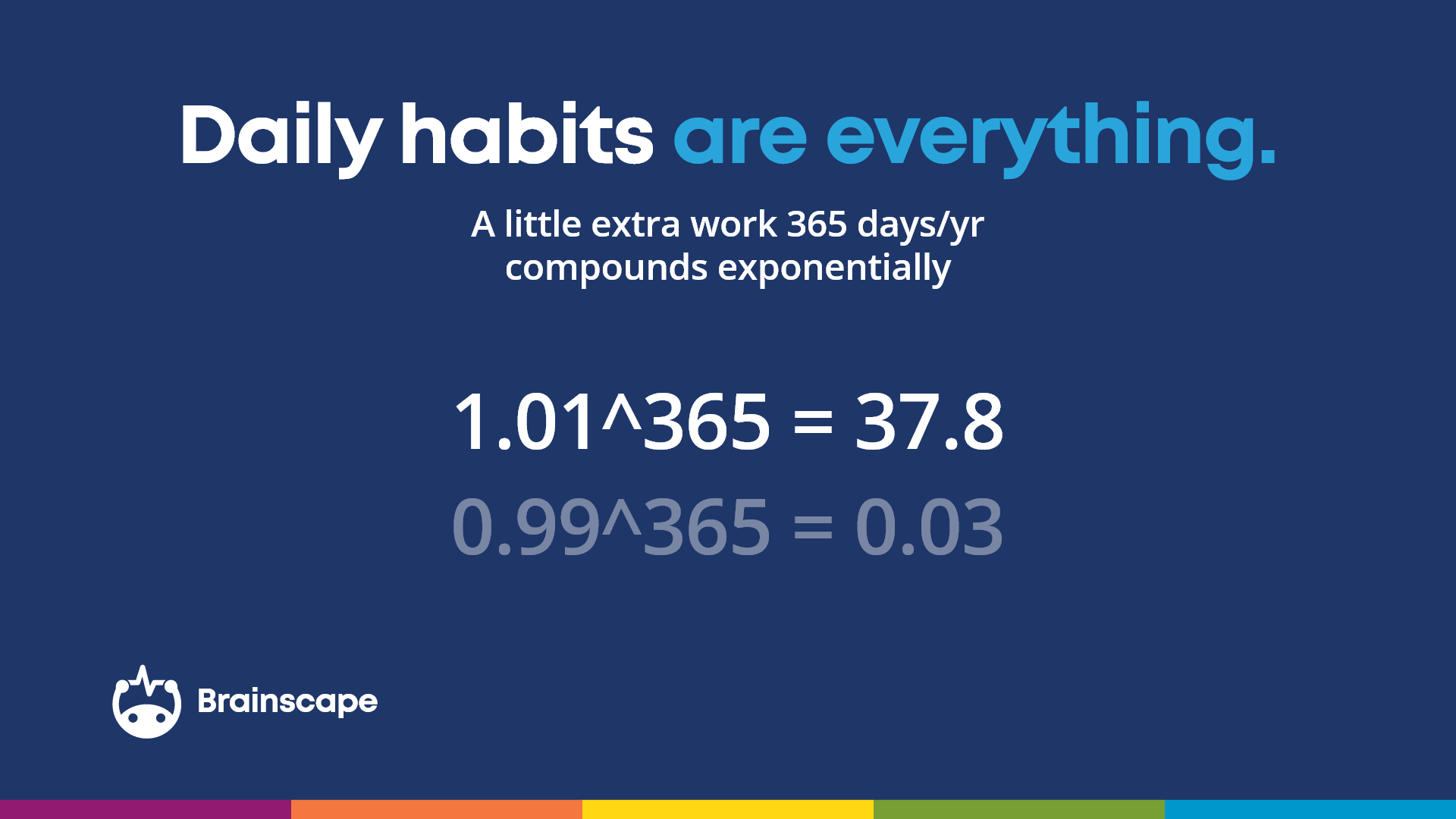Summer is a great time if you're a student. All that freedom and empty time is necessary to keep you sane from all the craziness of the school year. And as we've shown in a previous article, breaks are critical to maintaining brain performance.
Still, summer can’t be totally without educational stimulation, or students will experience “summer brain drain.” Summer brain drain (or "summer slide", as it’s sometimes called) is a common condition where students forget key information they had previously mastered. This learning loss slows down returning students at best, and at worst, leaves them behind for a significant part of the new school year.
The following article (originally posted on Private School Review) interviews some of the top educational experts across the nation, as well as CEOs of some of the best emerging education aid companies (including Brainscape’s founder and CEO Andrew Cohen!) to get their input on some of the best ways to prevent brain drain without interrupting the beneficial neurological benefits of relaxation.
Read on to learn some great ways to keep your kids from experiencing summer brain drain with a some summer studying.
1. “We’re always learning, but what are we learning?”
First thing’s first: take time to get to know your interests. Dr. Alice Wilder, Chief Content Officer at Speakaboos, is a huge proponent of tapping into children’s interests to maximize their learning potential. Dr. Wilder is a leader in children’s media and research, with senior production roles on landmark franchises and programs like Blue’s Clues, Super Why!, Speakaboos, and Amazon Kids (to name just a few of her many projects and accomplishments).
Dr. Wilder says parents should allow their child to be bored at times to uncover their interests. “See what they come up with. Watch them play and get to know what they’re into, so you can support them in their interests. If you’re doing something together, listen to them about what they like and don’t like. The research suggests that how you play as a child helps define the person you become as an adult.”
This applies to teens and adults, too. The best learning happens when it's personalized. Dive into things you're interested in. As Dr. Wilder says, “The truth is that we all as learners are unique. Our interests are unique. What captures us is unique.” Find out what sparks your interest so you can use that to motivate your studying.
2. Read, read, read

After weeks of hunching over textbooks, it’s easy to forget that reading can also be a pleasant experience that people sometimes partake in voluntarily. Pick up some good fiction to keep your brain’s absorption skills in shape, expand your range of human experience, and remember how to enjoy a book for its own sake. It’ll make the return to textbooks much less daunting.
Research consistently shows that students who are not reading and practicing the skills they learned during the year will lose many of the skills and information gained during the school year. This is why Tracy Zampaglione, Public Relations Administrator for the Orange County Library System, encourages students to utilize their public libraries—and even participate in a summer reading program. “Virtually all libraries offer some sort of such program, and it’s a free, fun way to keep learning while school is out of session. Many programs even include contests and other incentives.”
Wondering what to read? Here are some Brainscape employee favorites:
- Einstein’s Dreams by Alan Lightman
- The Diamond Age by Neal Stephenson
- The Baron in the Trees by Italo Calvino
- Lilith’s Brood by Octavia Butler
- Year of the Flood by Margaret Atwood
- From Time to Time by Jack Finney
- Blink by Malcolm Gladwell
3. Learn to cook
Take advantage of that full fridge! Cooking requires you to exercise your creative, quantitative, and fine motor skills. Master a new dish to show off when you get back to school, and check out these mental performance-enhancing recipes. Learning to cook may be the most important thing you learn to prepare yourself for—or make the most of—college.
4. Join a summer camp or get a summer job
Another easy way to make the summer both fun and intellectually productive is to engage in summer activities. For kids, that can mean joining a summer camp. For teens and college students, that can be getting a summer job—even a camp counsellor.
April Whitlock, CEO of the Fundanoodle learning system, says a child’s mind can benefit from camp experience that is designed to enrich the brain. “There are many great camps that will not only provide a fun way to keep your children busy for a week but keep their minds busy as well.”
Diana Lebeaux, Curriculum Manager at The Boys’ Club of New York, says well-planned activities at camp can engage and enrich the mind. “At The Boys’ Club of New York (BCNY), explicit academic activities like early literacy and STEM are paired with creative problem-solving competitions, art clubs, and rigorous physical activity in the summer, ensuring that our members are not only keeping their skills sharp, but also gaining a much-needed supplement to the more limiting, test-oriented school experience.”
And if you're teaching at those those camps, you'll be learning too. Research shows that teaching is one of the most effective ways to learn.
5. Enjoy summer studying technology
An important part of getting students motivated to learn and stay active during the summer is to take advantage of the platforms and media they are already using on a day to day basis. There are many innovative mobile apps and digital programs that can help kids learn from the comfort of their computer, iPhone, or iPad. These apps allow students to explore areas of interest and learn new things in an interactive, engaging way.
Andrew Cohen, Founder and CEO of Brainscape, knows the value of fun learning and has put this concept to work with the Brainscape learning app. “It’s a study tool, not a game, but that doesn’t mean it can’t be fun. Students don’t have to have their nose buried in a textbook to learn, there are opportunities all around us. You can disguise the learning process by using a hands-on activity your students are already eager to take part in.”
“We see the do-it-yourself aspect of Brainscape really come into play when our adult users are trying to combat the summer slide with their kids. It’s another way to get kids more eager to learn during the summer—teach them something they actually want to learn about. We’ve seen users create things like dinosaur flashcards or time-telling cards to use with their kids. The subject possibilities are endless and we’ve seen some users create some really interesting content. It’s a great way for parents to spend time with their children in a way that keeps the kids entertained while still stimulating their brain.”
Michael Edlavitch, CEO of Hooda Math, echoes these sentiments. The key to getting kids to learn is getting them to have fun! “Kids can lose a lot of the progress they made during the school year if they’re not keeping their minds active over the summer, but there's a limit to how many math worksheets or flashcards a student will want to study over the summer. Our games are so fun that most students don’t even realize they’re learning!” If you can find a way to make learning into a game, whether it’s through a game like Hooda Math, a mobile app, or a family game, your kids will be more open to learning and will have a more productive summer too!
So what works better, traditional books or digital media? Dr. Alice Wilder recommends a mix of both types. “Hardcover books are great because you use your own imagination to see. Others can be animated by digital media. It doesn’t matter if you’re reading a book or participating in digital media. The trick is to create a connection.” Dr. Alice believes digital media can excite and inspire children to want to learn more, and “that’s what the beauty of digital really is. Spark their desire, imagination, and curiosity. This creates the depth of learning.”
Online study tools and games aren't just for kids, either. Students of all ages can benefit from them. Just find ones that you enjoy and you'll keep away the summer slide while still giving your brain a break.
6. Exercise

Without a set class schedule it’s easy to fall out of the exercise rhythm. But exercise is critical to brain health. Do whatever you can to maintain the habit, even if it’s just a small daily workout. And if you’re not in the habit of working out, there’s no better time to start than now. Like we’ve said before, the benefits of exercise to the brain are manifold.
7. Explore new things
Exploration may just be the key to keeping a student's mind sharp, says Ellen Robinson, Program Director of Real School Gardens. “Let kids explore outdoors to avoid brain drain. Let them grow their own veggies to watch over time—sunflowers would also work well because they grow so quickly (use the Mammoth variety for the most spectacular results). Try capturing bugs and count their legs/body parts to determine whether or not they’re a “true” insect (3 body parts, 6 legs, and a pair of antennae).”
Logan LeCompte, Educator at Real School Gardens who also goes by the name “LeCompost”, agrees that Mother Nature is a perfect environment for learning. “Encourage kids to keep a summer reading log or a summer nature journal to write all of their observations during nature walks. There are several yard projects and problem solving that happens naturally when kids are outside. Find a problem in your landscape, and encourage the child to research solutions and then actually fix it and do it. For example, if you have wanted to create a drip irrigation system in your garden, this would be a fantastic parent/child project to teach about conservation, the water cycle, and plant needs.”
Brian Stewart of BWS Education Consulting recommends letting kids explore with educational trips. “Allow them to plan a family field trip to a nearby historical or scientific site.” Older kids can use the summer to learn about careers. “Find a professional in the area who would be willing to let them job shadow for a day so they can see the connections between school learning and real world applications.”
8. Learn a language
If you have a young child, learning a second language may be a great way to keep their brain sharp during the summer months. “One of the best things parents can do for their kids this summer is to start teaching them a second language,” says Julia Pimsleur Levine, founder of Little Pim. “Once kids turn six, their brains become much less receptive to foreign languages—the window on language learning basically starts to close pretty dramatically—so this is the one thing parents need to jumpstart even before kids go to PreK.”
And learning a language isn't just for kids. Learning Latin could give you a step-up on your SAT, while learning French or Spanish could get you ready for your Spring break trip. Learning a language is fun; it'll keep your brain warmed up over the summer without overwhelming it.
[Check out our massive toolkit for how to learn a language more efficiently.]
9. Study for an exam
I know, the last thing you want to be thinking about in the summer is studying for an exam. Can't summer studying be about something light? But this really is the best time to get a head start on that looming entrance exam, the bar exam, or professional certification. If you get going on it now, you'll thank yourself when all your friends are freaking out and you're taking it easy-breezy, living your best life.

And it doesn't have to be heavy studying. In fact, research shows that studying a little bit each day creates exponential results: you'll learn way faster. How can you start studying for that exam in the summer?
- Make a study plan
- Start making flashcards for the content you'll need to know.
- Study as little as 10-20 minutes every day. If you don't have much going on or the exam is coming up, then up it to an hour or two a day.
- Review material you've already learned, even if it was a year or two ago.
- Test yourself on the stuff you're learning.
We promise: the more you prepare in advance, the better off you'll be. For example, you can start studying for the bar exam right from your first year of law school. Or, you can study for the NCLEX right from the beginning of nursing school. And so on. You'll learn better, you'll do better and you'll be less stressed.
[See also: How to build strong study habits to optimize your learning.]
10. Make fun a part of the mix
As alluded to before, it is vitally important to make sure that educational activities are engaging, fun and interesting to students. At the end of the day, they also need time to relax and simply enjoy summer.
Jeff Knox, Educational Counselor at PrepMatters knows how much students look forward to summer break and how important it is for them to have a good time. Neither students nor parents have to totally surrender their summer plans, according to Jeff. “Instead, students should focus on balance: go to the beach; play sports; take naps—just be sure to mix in some more academically inclined activities, too. Camps, summer programs, volunteering—your options are plentiful; the key is to find something that engages your interests as well as your brain cells. This way you can enjoy your summer while still staying mentally limber for the return of school in the fall.”
Andrew Cohen of Brainscape believes gamification can inject fun into your child’s learning. “We see this being utilized a lot now on mobile apps and websites to get people to complete things faster or more accurately, but the same strategy can easily be applied in everyday life.”
Summer studying doesn't have to be boring

Provide the right opportunities—for yourself or for your kids. If nothing else, dive into something totally new and give it a try. Diana Lebeaux of The Boys’ Club of New York dreams of a world where all parents and kids take advantage of these opportunities. “The question is not how students can learn in the summer—it’s how so many kids don’t. Anything can be a learning opportunity and whether it’s a parent, a summer program, summer school, a job, or simply going to the park, it’s important that these opportunities are maximized.”
